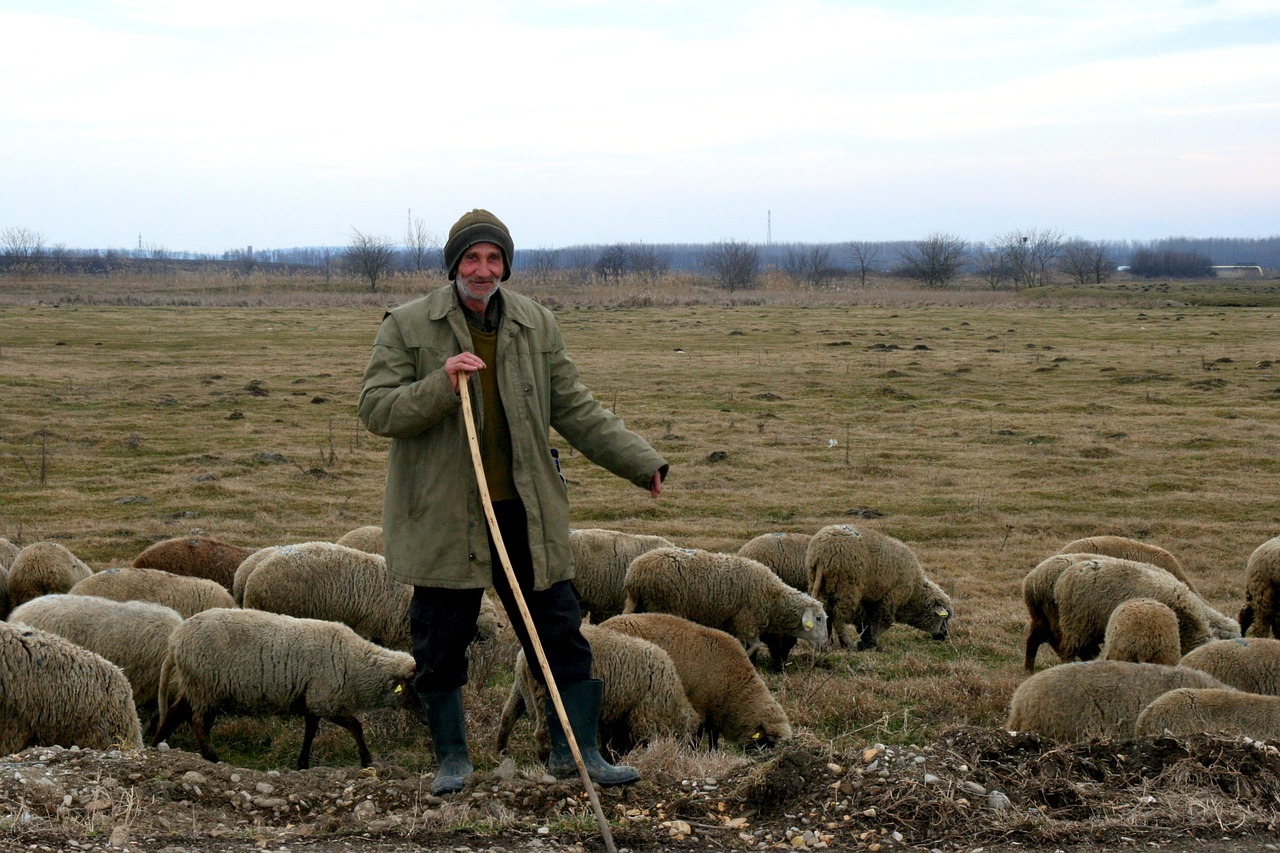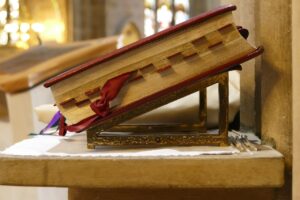Acts 2: 14a, 36-41 (RM) or 2: 42-47 (RCL); Psalm 23; 1 Peter 2: 20b-25 (RM) or 19-25 (RCL); John 10: 1-10
Did anyone else get a queasy feeling, a few years ago, when Pope Francis proclaimed that the shepherds “must smell like the sheep?”
And I don’t mean because we were imagining what a pen full of sheep smells like.
At first glance the analogy may sound quaint and cute. But it’s built on, first, the extension of the image of Jesus as the Good Shepherd to contemporary church leaders, and secondly, what that says to the laity about their human status.
In this imagery the shepherds are human, and as such, intelligent, powerful and tasked with guiding and protecting the sheep, who are “dumb animals” as it used to be said, incapable of anything more than passively trotting along after their shepherd. This analogy could not be a more explicit warrant for clericalism.
From many years of working across ecumenical boundaries I can reassure Roman Catholics that they have no exclusive claim to clericalism and the entitlement of the ordained to control and domination. While you can find overbearing clergy in any denomination, you can also, regrettably, find laity who exhibit a high degree of dependency on their leaders to give them direction and a stable point of reference. I’ve heard seminary students use this as an excuse: “Well the people look up to us. They want us to have all the answers. They do.”
Now on the Fourth Sunday of Easter, there’s an interesting flip in the First Reading. The Roman Missal uses the passage in Acts 2 in which Peter is castigating the Jewish religious leaders and calling them to believe in the risen Christ. In the Revised Common Lectionary, the Acts 2 excerpt describes the ideal of the early Christian community. Back on the Second Sunday of Easter the two were switched out: the RC’s got the community description and the Protestants and Anglicans got Peter’s speech. I can’t entirely explain this. The criteria for choice of the Lectionary readings can be a mystery for outsiders.
But we’re going with the RCL today because coupling this with John 10: 1-10 will give us an entrée to deal with the nature of leadership in a community of mutuality.
Acts was composed around the year 85 C.E./A.D. Its description of how the earliest Christian community lived is what we might call today “aspirational” – that is, highly idealized. Other passages in Acts describe struggles and dissensions within the community, but this picture seems to be what they were aiming for.
Acts 2 describes four components. The “teaching of the apostles” refers to the development of understanding about what Christ’s death and resurrection meant, and how it functions as an ethical call. The theology, for them as for us, is a work in progress. The second aspect has to do with the practice of communal sharing of goods among members of the community. This does not mean that every Christian was required to divest him- or herself of all holdings. Lydia, for example, put her probably sizeable home at the disposal of the faith community as a gathering place. The third aspect concerned their life of shared prayer. The early Jewish Christians continued to pray at the appropriate hours of the day and to attend synagogue, until they were expelled. And fourthly, they shared meals together. At this early stage the expression “klasis tou artou,” the breaking of the bread (doesn’t the Greek word klasis sounds like you’re breaking something?) indicates that their meals carried a certain sacred meaning, and while we can see this as a sort of proto-Eucharist, it took place in the context of a full meal, perhaps an agape meal.
What would leadership look like in such an admittedly idealized community? It might look a good deal like a discipleship of equals, in Elisabeth Schüssler-Fiorenza’s classic phrase. Especially if a goodly number of those early Christians had had first-hand experience of the risen Christ, and knew that this had happened for real, the energy and commitment generated by this knowledge could empower an entire community. They really did experience the Holy Spirit empowering healing for the sick, and spreading a vision of new life and unshakeable hope for all.
Clericalism. Baaaaa.
© Susan K. Roll
Susan Roll retired from the Faculty of Theology at Saint Paul University, Ottawa, in 2018, where she served as Director of the Sophia Research Centre. Her research and publications are centred in the fields of liturgy, sacraments, and feminist theology. She holds a Ph.D. from the Catholic University of Leuven (Louvain), Belgium, and has been involved with international academic societies in liturgy and theology, as well as university chaplaincy, Indigenous ministry and church reform projects.





I find the vision of a discipleship community of equals so compelling. Thank you for illuminating the scriptural aspects of that vision in today’s readings.